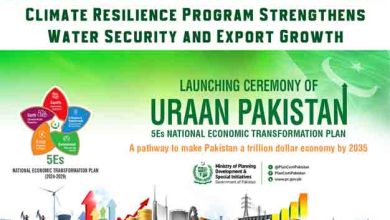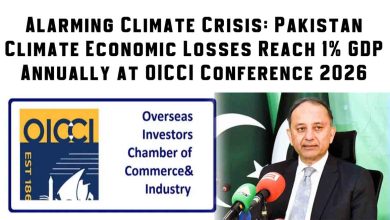Urban Flood Management in Islamabad
On July 9, 2024, I attended the Urban Floods: Implications for Resilience workshop co-hosted by SDPI and the Pak-German Climate & Energy Partnership in Islamabad. Major takeaways from the event entailed the grim situation of climate change susceptibility and its impact on Urban Flooding.
Islamabad is in jeopardy as not only the forecasts entail that heavy monsoon is incoming but it has already been affected by calamitous urban flooding, exacerbated by rapid and unplanned urbanization.
Since the turbulent ‘cloud burst’ of 2021 that drowned the capital city, I have incessantly advised the government authorities to take measures to ameliorate the pressing issue of urban flooding. It is a fact that climate change is the most pressing global situation of our time that needs to be dealt with urgently.
During the seminar, we delved deep into the causes, dynamics and prognosis of urban flooding to mitigate the high risk of climate change. The workshop emphasized the need for integrated, innovative, and community-involved approaches to enhance urban resilience.
Pakistan must move towards innovation and novel approaches.
It is predicted that the urban population will rise to 80 percent by 2050. Due to rapid unregulated urban sprawl, deforestation and illegal encroachments, green spaces are reducing and ‘climate change vulnerability’ is increasing. The capital can now be dubbed as the ‘heat island’.
However, not only is there a dearth of data available but there is hardly any application. Government and donors must utilize resources for data collection and implementation. Better technology (LEAP, GIS, evacuation rooms and floor hazard maps) must be utilized to simulate floods to avoid them in real time, particularly in the hotspots. Early warning mechanisms will be a game-changer in preventing losses.
The National Adaptation Plan must be revamped via risk communication. Most importantly, socio-economic pathways must be taken to rectify vulnerabilities- economic, social, institutional, psychological and attitudinal. We must take a bottom-up approach to better understand and incorporate communities. Risk perception must be rectified via education and community-based programs.
Instead of falling into the blame game, it is crucial to take accountability. Horizontal and vertical linkages between institutions and sectors are a major hurdle towards policy implementation.
It is incumbent upon government agencies and media to foster public awareness. Pakistan must move towards innovation and novel approaches- such as a circular economy. I am confident that the insights made during the workshop reinforced the urgency of proactive measures to mitigate the impacts of climate change on urban areas in Pakistan and with the policy recommendations put forth we will be able to devise a policy.
The writer is a policy advocate and researcher. She is a Public Policy Master’s graduate of King’s College London.







